War Merit Decoration, I Class Medal (in bronze)
CATEGORY: Version
SKU: 02.SXM.0108.101.01.000
Estimated market value:
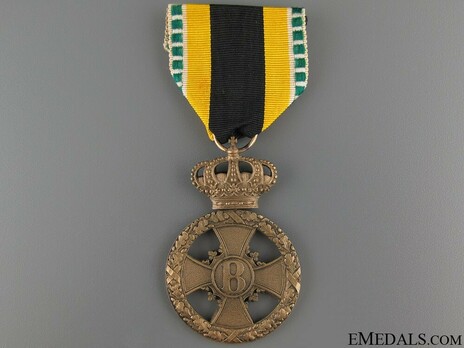
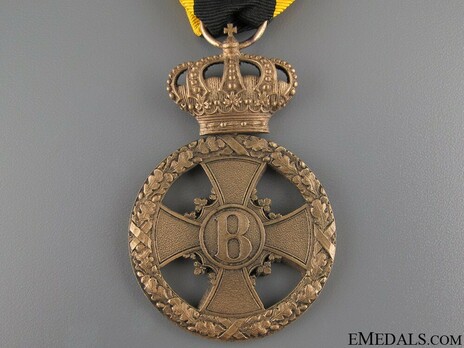
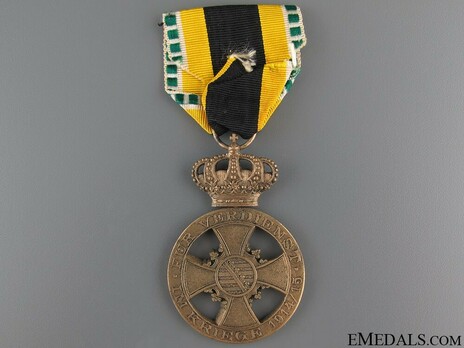
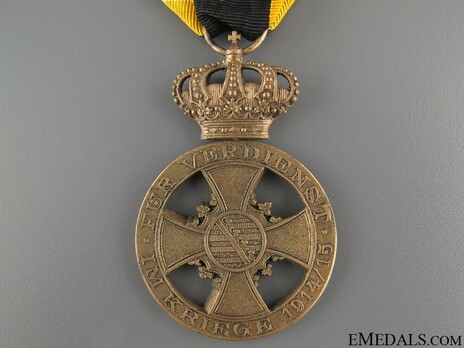
Estimated market value:
A George’s cross with pebbled, curved arms and raised, smooth edges inside a circle, constructed of copper-toned bronze. On top of the decoration sits a mobile crown. The circle around the cross is made of an oak leaf wreath tied with four ribbons on the obverse. In between the arms is a rue wreath. The obverse centre medallion features a monogram ‘B’. The reverse is similar, except that the centre medallion features a Saxon coat of arms and the circle around the cross features the inscription ‘FÜR VERDIENST IM KRIEGE 1914/15’ (‘for merit in war’).
On a loop for suspension. Combatants received the award on a yellow ribbon with a broad black centre and white borders with horizontal green stripes, whereas non-combatants received the award on a yellow ribbon with a broad black centre, as well as inner white and outer green borders.
The War Merit Decoration was instituted by Duke Bernhard III on March 7, 1915. The decoration was conferred upon combatants and non-combatants who demonstrated military merit during the First World War. The combatants who received the award included the members of the 2nd Thuringian Infantry Regiment No. 32 and No. 95.
The award was established in two grades, a I Class Medal for officers and a II Class Medal for non-commissioned officers and enlisted ranks. The decorations for combatants and non-combatants were conferred on different ribbons.
The medals were originally produced in bronze, but near the end of the war they were produced in zinc due to material shortages.

Comments
Sign in to comment and reply.

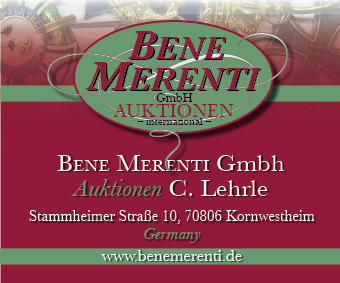
Scroll Top